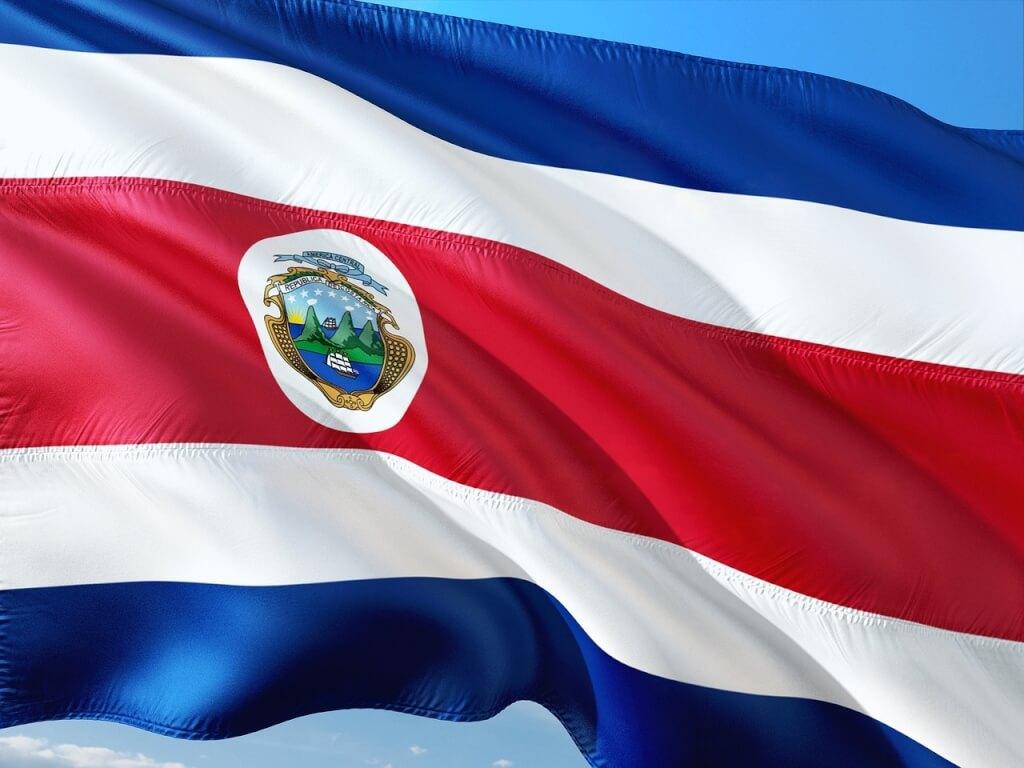Costa Rica’s presidential office has confirmed that five intelligence officials were sent to Taiwan last month for intelligence training, a Costa Rican newspaper reported yesterday.
It was the first official intelligence exchange since the Central American country severed diplomatic ties with Taiwan in 2007.
Five Costa Rican Directorate of Intelligence and Security (DIS) officials were in Taiwan from May 8 to 31 to attend a basic intelligence course, the Spanish-language La Nacion reported, adding that their expenses were covered by Taiwan.

Photo: CNA
As DIS does not have its own training budget, it was important to seize the opportunity, the Costa Rican presidential office was quoted as saying.
The Costa Rican Foreign Trade Promoter (PROCOMER) also sent two personnel to Taiwan to attract investment, with a focus on semiconductor cooperation, Costa Rican Minister of Foreign Trade Manuel Tovar said.
China has protested Costa Rica’s decision to send officials to Taiwan, with the Chinese embassy in Costa Rica saying that the move contravenes its so-called “one China” principle.
It said it opposed any official exchanges between Taiwan and Costa Rica.
Costa Rican President Rodrigo Chaves did not respond to China’s protest during a news conference yesterday, but did criticize Huawei for trying to influence members of the Costa Rican legislature.
Those legislators with close ties to China and Huawei are “lobbyists for foreign interests,” Chaves said.
Costa Rica in 2023 banned Huawei from participating in its 5G telecom network buildout. Huawei filed a lawsuit in retaliation and the US government revoked the visas of several Costa Rican officials aligned with the company.
Since recognizing China in 2007, promised economic growth in Costa Rica from free trade agreements and foreign direct investments have failed to materialize, the CentroAmerica360 news outlet reported.
Costa Rica’s trade deficit has grown and Chinese investment is marginal, it said.
Since taking office in 2022, Chaves has moved to align Costa Rica with US policy on China and build ties with Taiwan, the outlet said.

Alain Robert, known as the "French Spider-Man," praised Alex Honnold as exceptionally well-prepared after the US climber completed a free solo ascent of Taipei 101 yesterday. Robert said Honnold's ascent of the 508m-tall skyscraper in just more than one-and-a-half hours without using safety ropes or equipment was a remarkable achievement. "This is my life," he said in an interview conducted in French, adding that he liked the feeling of being "on the edge of danger." The 63-year-old Frenchman climbed Taipei 101 using ropes in December 2004, taking about four hours to reach the top. On a one-to-10 scale of difficulty, Robert said Taipei 101

Taiwanese and US defense groups are collaborating to introduce deployable, semi-autonomous manufacturing systems for drones and components in a boost to the nation’s supply chain resilience. Taiwan’s G-Tech Optroelectronics Corp subsidiary GTOC and the US’ Aerkomm Inc on Friday announced an agreement with fellow US-based Firestorm Lab to adopt the latter’s xCell, a technology featuring 3D printers fitted in 6.1m container units. The systems enable aerial platforms and parts to be produced in high volumes from dispersed nodes capable of rapid redeployment, to minimize the risk of enemy strikes and to meet field requirements, they said. Firestorm chief technology officer Ian Muceus said

MORE FALL: An investigation into one of Xi’s key cronies, part of a broader ‘anti-corruption’ drive, indicates that he might have a deep distrust in the military, an expert said China’s latest military purge underscores systemic risks in its shift from collective leadership to sole rule under Chinese President Xi Jinping (習近平), and could disrupt its chain of command and military capabilities, a national security official said yesterday. If decisionmaking within the Chinese Communist Party has become “irrational” under one-man rule, the Taiwan Strait and the regional situation must be approached with extreme caution, given unforeseen risks, they added. The anonymous official made the remarks as China’s Central Military Commission Vice Chairman Zhang Youxia (張又俠) and Joint Staff Department Chief of Staff Liu Zhenli (劉振立) were reportedly being investigated for suspected “serious

American climber Alex Honnold is to attempt a free climb of Taipei 101 today at 9am, with traffic closures around the skyscraper. To accommodate the climb attempt and filming, the Taipei Department of Transportation said traffic controls would be enforced around the Taipei 101 area. If weather conditions delay the climb, the restrictions would be pushed back to tomorrow. Traffic controls would be in place today from 7am to 11am around the Taipei 101 area, the department said. Songzhi Road would be fully closed in both directions between Songlian Road and Xinyi Road Sec 5, it said, adding that bidirectional traffic controls would